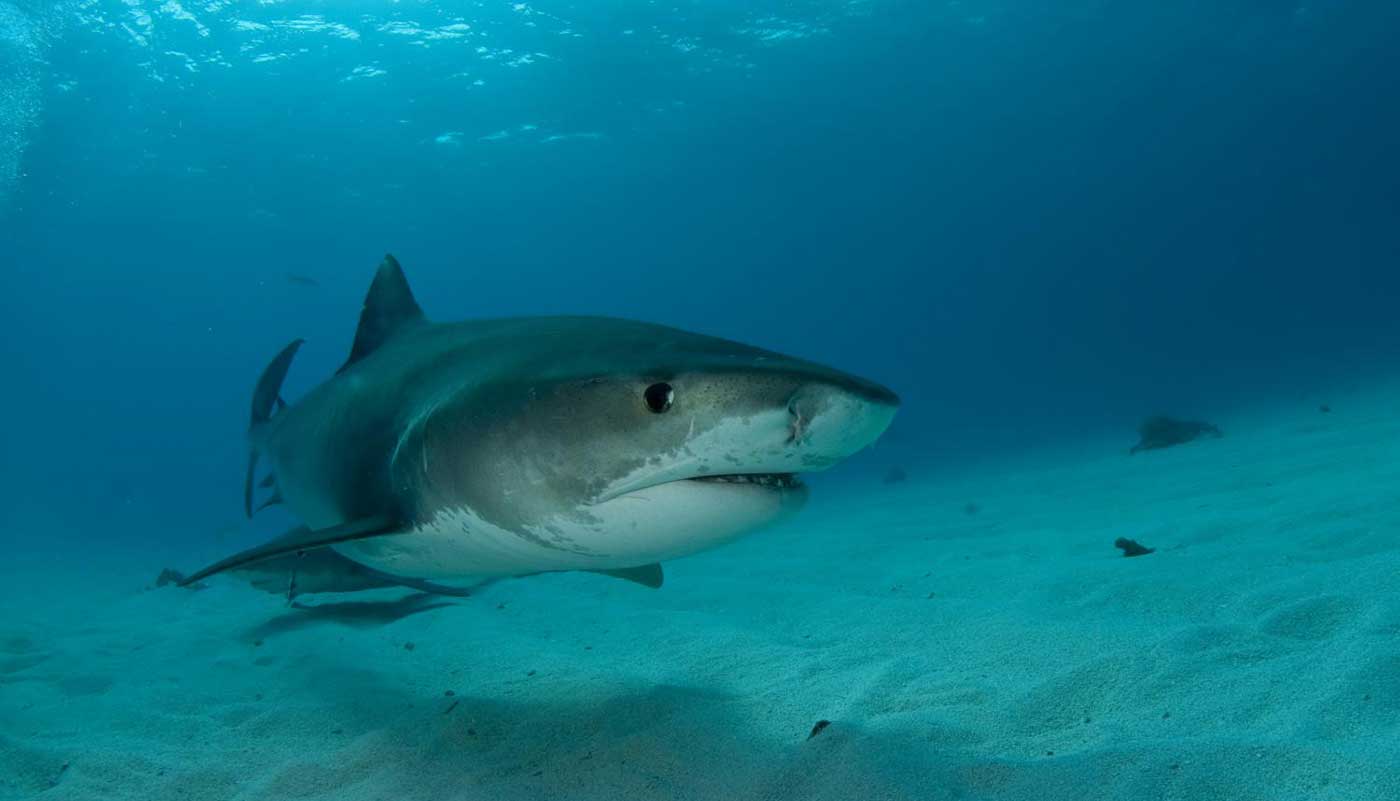Six sharks killed after Great Barrier Reef attacks
Conservationists speak out against indiscriminate culling by Australian authorities

A free daily email with the biggest news stories of the day – and the best features from TheWeek.com
You are now subscribed
Your newsletter sign-up was successful
Marine scientists have criticised the decision to kill six sharks following attacks on two swimmers at a popular tourist spot in the Great Barrier Reef.
Melbourne resident Hannah Papps, 12, and 46-year-old Justine Barwick, from Tasmania, were mauled in separate incidents a day apart last week at the Whitsunday Islands, off the Queensland coast, the Daily Mail reports. Both “remain in a critical but stable condition in hospital”, Sky News adds.
Queensland state authorities used drum lines, which use baited hooks, to catch the sharks - five tiger sharks measuring up to 3.7 metres (12 feet) long and one smaller black tip shark. It is not known whether any of the creatures were involved in last week’s attacks.
The Week
Escape your echo chamber. Get the facts behind the news, plus analysis from multiple perspectives.

Sign up for The Week's Free Newsletters
From our morning news briefing to a weekly Good News Newsletter, get the best of The Week delivered directly to your inbox.
From our morning news briefing to a weekly Good News Newsletter, get the best of The Week delivered directly to your inbox.
Fisheries Queensland said the sharks had been “humanely euthanised” and “taken out to sea for disposal”. Local media claimed they were shot, according to the Mail.
“The message is these waters are not safe for swimming,” a fisheries spokeswoman said.
The drum lines will remain in place over the next week on order to reduce the risk to swimmers. However, many conservationists and marine scientists say the lines pose a risk to other marine wildlife.
Experts have also warned that killing sharks could disrupt the ecology of the ocean.
A free daily email with the biggest news stories of the day – and the best features from TheWeek.com
According to Australian broadcaster ABC, the two recent attacks were the first in eight years.
-
 The mystery of flight MH370
The mystery of flight MH370The Explainer In 2014, the passenger plane vanished without trace. Twelve years on, a new operation is under way to find the wreckage of the doomed airliner
-
 5 royally funny cartoons about the former prince Andrew’s arrest
5 royally funny cartoons about the former prince Andrew’s arrestCartoons Artists take on falling from grace, kingly manners, and more
-
 The identical twins derailing a French murder trial
The identical twins derailing a French murder trialUnder The Radar Police are unable to tell which suspect’s DNA is on the weapon
-
 Epstein files topple law CEO, roil UK government
Epstein files topple law CEO, roil UK governmentSpeed Read Peter Mandelson, Britain’s former ambassador to the US, is caught up in the scandal
-
 Iran and US prepare to meet after skirmishes
Iran and US prepare to meet after skirmishesSpeed Read The incident comes amid heightened tensions in the Middle East
-
 Israel retrieves final hostage’s body from Gaza
Israel retrieves final hostage’s body from GazaSpeed Read The 24-year-old police officer was killed during the initial Hamas attack
-
 China’s Xi targets top general in growing purge
China’s Xi targets top general in growing purgeSpeed Read Zhang Youxia is being investigated over ‘grave violations’ of the law
-
 Panama and Canada are negotiating over a crucial copper mine
Panama and Canada are negotiating over a crucial copper mineIn the Spotlight Panama is set to make a final decision on the mine this summer
-
 Why Greenland’s natural resources are nearly impossible to mine
Why Greenland’s natural resources are nearly impossible to mineThe Explainer The country’s natural landscape makes the task extremely difficult
-
 Iran cuts internet as protests escalate
Iran cuts internet as protests escalateSpeed Reada Government buildings across the country have been set on fire
-
 US nabs ‘shadow’ tanker claimed by Russia
US nabs ‘shadow’ tanker claimed by RussiaSpeed Read The ship was one of two vessels seized by the US military